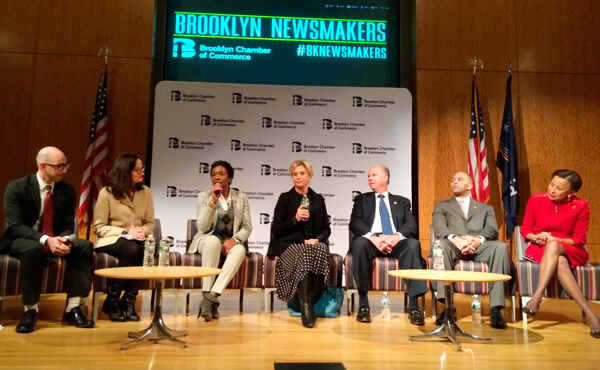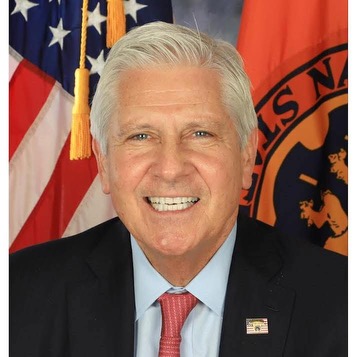Brooklyn Congressman Hakeem Jeffries, chairman of the House Democratic Caucus, on Monday joined congressional representatives in introducing new bipartisan, bicameral legislation to curb the abuse of the Food and Drug Administration (FDA) petition process and increase access to affordable prescription drugs.
Jeffries was joined by US Senator Amy Klobuchar (D-MN), Ranking Member of the Senate Judiciary Subcommittee on Antitrust, Competition Policy and Consumer Rights; Senator Chuck Grassley (R-IA), chairman of the Senate Finance Committee; Representative Jerrold Nadler (D-NY), chairman of the House Judiciary Committee; Representative Doug Collins (R-GA), Ranking Member of the House Judiciary Committee; Representative Jim Sensenbrenner (R-WI), Ranking Member of the House Judiciary Subcommittee on Antitrust, Commercial and Administrative; and Representative Peter Welch (D-VT).
Jeffries, who represents the 8th Congressional District, which encompasses parts of Brooklyn and Queens, said the Stop Significant and Time-wasting Abuse Limiting Legitimate Innovation of New Generics (Stop STALLING) Act would “reduce the incentives for branded pharmaceutical companies to interfere with the regulatory approval of generics and biosimilars that would compete with their own products, a tactic that delays patient access to more affordable medications.”
He said the bill would also give the Federal Trade Commission (FTC) enhanced authority to take action against those who file sham petitions.
“No one should be forced to make the unthinkable choice between lifesaving prescription drugs and putting food on the table,” Jeffries said. “The Stop STALLING Act aims to drive down the sky-high cost of medicine by expediting access to affordable generic drugs for everyday Americans.
“Senators Klobuchar and Grassley, along with Representatives Sensenbrenner, Collins and Welch should be commended for their leadership in this regard,” he added.
Klobuchar said the FDA petitioning process offers the public “an opportunity to raise legitimate health and safety issues regarding potential new drugs but for too long some businesses have been using it to advance their commercial interests at the expense of patients and consumers.
“Increased competition in prescription drug markets can only happen if we eliminate incentives for bad behavior, like submitting sham petitions that delay safe and effective generics and biosimilars from reaching the patients who need them,” she said. “The bipartisan Stop STALLING Act will give enforcers increased authority to crack down on these abusive practices, helping to ensure that drug makers will think twice before submitting sham petitions that have more to do with increasing profits than improving patient safety.”
Specifically, the Stop STALLING Act would create an FTC cause of action against sham petitions as unfair methods of competition; create a rebuttable legal presumption of illegality for certain petitions referred from the FDA with a finding that they were submitted for the primary purpose of delaying the approval of a drug application; and grant the FTC the authority to seek civil penalties for violations.
Although interested parties may file petitions with the FDA in connection with its review of certain drugs, Jeffries said concerns have been raised that pharmaceutical companies file serial petitions or last-minute petitions in attempts to delay generic approval, while imposing significant and unnecessary review costs on the FDA.























